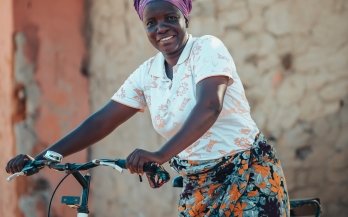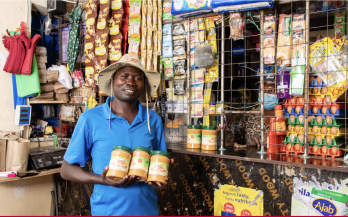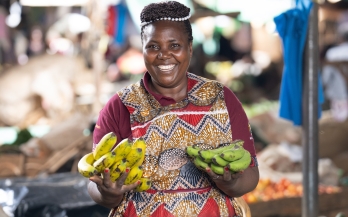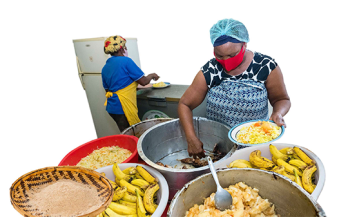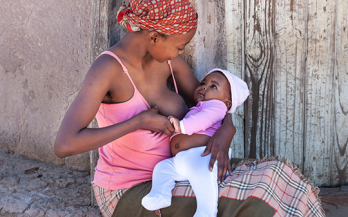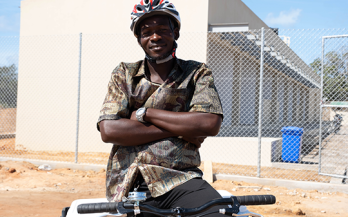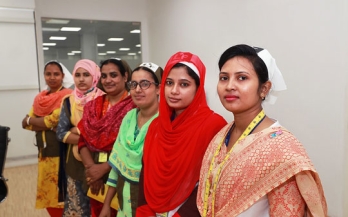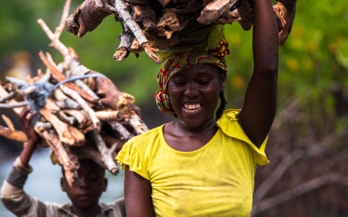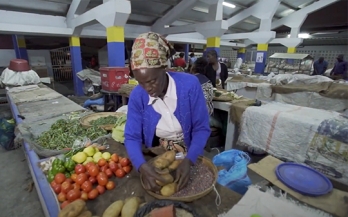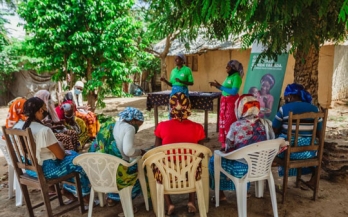Previously, we showed how NutriBaik is changing lives through this story. Today, we talk to Ancha Monequete on why she “finds hope in NutriBaik”. Here we see how, through women the NutriBaik, women are playing their part in the functioning of food systems.
NUTRITION IMPACT AT SCALE (NIS) Through the Nutrition Impact at Scale project, GAIN seeks to scale the impact of its work to increase access to safe and nutritious foods, especially for low-income consumers. By working with other organisations (Enterprise Support Organisations) that are willing and have the requisite capacity to attach a 'nutrition lens' to their work with small and medium enterprises (SMEs), Nutrition Impact at Scale (NIS) will enable a large-scale and accelerated nutrition impact for the larger African population. Funded by the Ministry of Foreign Affairs of the Netherlands, NIS uses a market systems development approach to improve food systems, increase inclusivity, and, ultimately, nutrition outcomes. The project leverages on the extensive experience GAIN have developed over the years of providing quality technical assistance, networking experience, knowledge sharing, building capacity of partners, and the provision of various tools and resources to MSMEs, to attach a 'nutrition lens' to the work of ESOs in Nigeria, Benin, Uganda, Ethiopia, Mozambique, and Kenya.
To address the triple burden on Mozambican’s Food system, GAIN in Mozambique is focused on innovative, scalable, and impactful initiatives aimed at identifying, updating, and disseminating legislation; developing businesses that produce and distribute safe and nutritious food; and implementing approaches to increase the demand and consumption of healthier diets by all Mozambicans
ToeffectivelytransformMozambique’snationalfoodsystemsinalignmentwiththeUnited Nations Food Systems Summit pathways, it is crucial to have access to current data and analytics. Mozambique’s Food Systems Dashboard, hosted by SETSAN1 (the National Secretariat for Food and Nutrition Security under the Ministry of Agriculture), plays a pivotal role in this transformation.
Through an innovative intervention called Emo Demos, about 12,680 women learned about the importance of breastfeeding. Meet Madalena, one of these women who learned to care for herself and her children during pregnancy and breastfeeding.
One of the biggest challenges street vendors face in Pemba and other parts of Mozambique, is having to travel long distances by foot, reaching more customers. NutriBike is an intervention to solve the storage challenges faced by street vendors. It provides street vendors suitable equipment for preserving and transporting their products maintaining quality, as well as enabling them to cover longer distances and faster.
In 2019, in an effort to improve the efficiency and sustainability of its programming, GAIN’s Workforce Nutrition Programme (WFN) shifted away from the traditional project development and evaluation cycle towards a nimbler "Quality Improvement" (QI) approach.
The burden of malnutrition in Mozambique is marked by high rates of child stunting (38%) and micronutrient deficiencies among women of reproductive age as well as an increasing prevalence of overweight among adult men and women (18% and 34% respectively). There is a continued need to engage all actors and options to address the malnutrition burden the world faces.
"After losing my husband, and with a family to look after, I had to wipe my tears and battle to provide for my family. It was from there that I realised that I needed to be the breadwinner of the family, and I became a vendor at the Munhava Market in Beira city". Joana Celestina, a female vendor at the central market in Mozambique.
This working paper describes the application of the Behaviour Centred Design (BCD) framework to develop the 'Moments with Mothers' campaign, an intervention to improve IYCF practices supporting pregnant women, mothers, and other caregivers in Nacala Porto and Mossuril, Nampula province.
